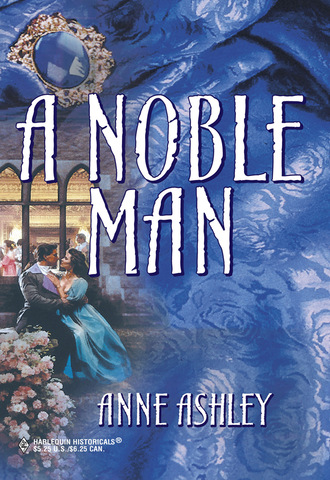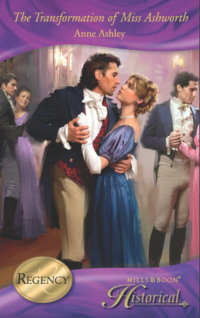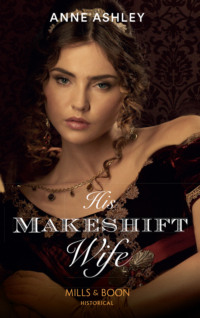
Полная версия
A Noble Man
Consequently, as the evening progressed, Sophia became increasingly satisfied with the many long and thoughtful glances cast in her direction. She was not so foolish as to suppose for a moment that everyone would believe the rumour which was circulating about her, nor did she consider that a supposed lack of fortune would deter every gentleman from making her an offer, and made allowances for this contingency by not standing up with the same gentleman more than once.
Nevertheless, she was never short of a partner, and the evening was well advanced before she managed to leave the dance floor and search out her good friend Robina Perceval, who also happened to be enjoying her first London Season.
“This is a truly magnificent ball,” Robina announced when Sophia had almost slumped, exhausted, in the vacant chair beside her. “I do not think I’ve ever seen so many people crowded into one room before. The dances Aunt Eleanor organises at the Angel back home are nothing to it.”
Sophia was not so impressed. Unlike Robina, who lived a rather quiet life at the vicarage in Abbot Quincey, a small market town situated within easy walking distance of the Cleeves’ country home, Sophia had attended many large parties since the age of sixteen. “Yes, a dreadful squeeze, isn’t it? You’ll need to accustom yourself to such gatherings, Robin, because I’m reliably informed that a party isn’t considered a success unless you’re forever stepping on someone’s toes.”
She took a moment to gaze about the crowded ballroom, trying to pick out the odd familiar face. “I was sorry to learn that your cousin Hester would not be attending, but her brother Hugo is here. I danced with him earlier.”
“I understand that Aunt Eleanor and Hester will not be arriving in town until April.” Robina couldn’t help but smile. “I think if it was left to Hester she wouldn’t be coming at all. Unlike Hugo, she has no taste for town life. She would much prefer to remain locked away in that attic room of hers. Though what she finds to keep her so occupied up there for hours at a time is anybody’s guess. Who would believe a brother and sister could be so dissimilar!”
Her smile faded as she glanced at her friend’s lovely profile. They had known each other most all their lives, and had always been the very best of friends, so Robina experienced no hesitation in saying, “I think you should know that there is a rather unpleasant rumour circulating about you tonight.” It was then she noticed the betraying twitch at the corner of her friend’s mouth. “Never tell me that you put it about that you haven’t a feather to fly with! What on earth possessed you?”
Well aware that the vicar’s daughter would never betray a confidence, Sophia didn’t hesitate in enlightening her. “So you see,” she went on, after repeating the gist of the interview with her father earlier in the day, “I was forced to do something to stem these ridiculous proposals of marriage. And it isn’t as if the rumour is a lie. Papa has threatened to disinherit me if I marry against his wishes.” A defiant little gleam sprang into her eyes. “And to be perfectly honest with you, at this precise moment in time I’m inclined to do precisely that.”
Robina sat silently digesting what she had learned. She had been taught to consider envy a sin, but couldn’t help feeling a touch resentful over her friend’s privileged position. Their circumstances were vastly contrasting. Sophia could reject suitors at will, whereas she herself would need to consider very carefully any offer of marriage that came her way. There was no fault to find with her lineage: both her parents came from noble stock. The Perceval name was an old and honoured one, but that did not alter the fact that she was little more than a country parson’s daughter whose dowry was woefully small. Her parents, though comfortably circumstanced, were by no means wealthy, and they most certainly could not afford a second London Season for their eldest daughter with three younger ones eagerly waiting to be launched into society. So Robina felt it her duty to accept any reasonable offer of marriage. But how she wished that she too could marry just for love!
“I have been away from the steadying influence of the vicarage a few days only,” she remarked with a wry little smile, “yet already I’m in danger of being corrupted by the dangerously frivolous lures and heady atmosphere of the metropolis.”
Sophia frankly laughed. “My staid little friend being led astray…? By whom or what, may I ask?”
“I shall explain some other time, for unless I much mistake the matter, a gentleman is approaching, with every intention of asking you to dance.”
Lord Nicholas Risely was, indeed, heading in their direction. Tall, slim and very good-looking, he was a firm favourite with a great many of society’s leading hostesses and, consequently, was invited everywhere. His attire was faultless, his address excellent, and as he just happened to be the son of a duke, albeit a younger one, he was looked upon as being a very eligible parti.
In the normal course of events these facts alone would have prompted Sophia to add his name to that list of gentlemen best avoided, but she had not. Instead, she had permitted him to add his name to her dance card, simply because she had been most reliably informed that Lord Nicholas Risely was not on the look-out for a wife.
Happily allowing him to lead her onto the dance floor, she couldn’t help noticing the strange look he cast her as they prepared to join one of the sets. “Something appears to be troubling you, my lord,” she remarked. “I cannot imagine you are concerned over making a cake of yourself. You are such an excellent dancer.”
As luck would have it the steps of the dance separated them, which granted Lord Nicholas the opportunity of formulating a response. Having met her on two occasions before, he had already decided that he rather liked Sophia Cleeve. She was bright and witty, nothing like the majority of simpering misses who flooded the marriage mart every year. If he had not been quite content to continue with his bachelor existence for a few years longer, she would have been just the sort of girl that would have appealed to him.
She was immensely pleasing on the eye, too. Perhaps not a beauty in the true classical style, but certainly lovely enough to prompt many a spiteful tabby with a daughter of her own to launch to start spreading malicious gossip about lack of fortune in the hope of making the lovely Lady Sophia appear far less desirable. It was all so unfair, so underhanded, and he for one had no intention of aiding any matchmaking mama’s cause by repeating what he had overheard that night.
“Nothing troubling me at all, my lady,” he assured her, as they came together again. “Couldn’t be happier. This is a wonderful ball, and I am honoured to be dancing with its belle.”
“How very gallant of you to say so, Lord Nicholas! Had any other gentleman said such a thing I would have been instantly on my guard, but with you I know I’m perfectly safe.”
Now what the deuce did she mean by that? he wondered, as they separated, and didn’t hesitate to ask for an explanation when they came together again.
“Simply that your good friend Freddy Fortescue assures me that you’re not about to relinquish your bachelor status quite yet and, therefore, I can accept your compliments without fear that you will be foolish enough to follow them up with a proposal of marriage.”
Nicholas blinked. This was plain-speaking of the highest order, and he wasn’t certain that he cared for it very much. He might not have any intention of asking this chit, or any other for that matter, to marry him, but it was very lowering to be told that one’s suit would never be welcomed anyway.
Sophia was not slow to notice the flicker of annoyance. “I’ve offended you, my lord, and I never meant to do so,” she assured him, her dazzling smile going some way to soothe a young gentleman’s bruised ego. “It’s just that I too am in no hurry to relinquish my single state either, and when I do it will never be to a member of the Ton.”
He thought for a moment that she couldn’t possibly be serious, that she might well be indulging in some wicked jest. Then he recalled being informed earlier in the evening that Lord Vale’s suit had not prospered. The gentleman himself was not present tonight to confirm this or not, though whether his absence stemmed from pique at having been rejected, or having a prior engagement, was anyone’s guess.
“You see, Lord Nicholas, men of wealth and rank hold no appeal for me.” Sophia decided that it could only aid her cause to spread this about. “I am determined to marry a worthy man, no matter how lowly his station in life.”
“A footman, rather than a marquis; a groom rather than a duke,” he suggested, half-joking. “I rather think your father will have a thing or two to say about that, Lady Sophia.”
“Oh, he already has, believe me,” she didn’t hesitate to disclose, “but his threat to disinherit me is certainly no deterrent.”
Still doubtful whether to believe her or not, he returned her to her pretty friend’s side once the dance came to an end, and promptly moved away in order to sample some of the excellent refreshments being served that evening. He had only just relieved a footman of a glass of champagne when he received a tap on the shoulder, and heard an imperious voice enquire, “Well, Risely, is what I’ve learned true or not?”
He turned to discover that most feared patroness of Almack’s regarding him with haughtily raised brows. Had it been anyone else he might have been tempted not to answer, but one ignored Sally Jersey at one’s peril. “Couldn’t say for certain, ma’am, one way or t’other. Shouldn’t imagine so, though, would you? The Earl of Yardley seems dashed too fond of his daughter to disinherit her.”
She dismissed this with a wave of one slender hand. “I’m not talking about that piece of utter nonsense. I really don’t know how these foolish rumours get started. No, it was to Sharnbrook I was referring. I ran into your sister the other day, paying one of her rare visits to town, and she mentioned that nothing had been heard from your brother in months.”
“Oh, aye, that’s right enough,” he confirmed, betraying what some might consider a callous lack of concern. “We received a letter from him six months ago, after he had learned of our father’s death, stating his intention of returning to this country before the end of the year. Can only imagine that something must have detained him out there in Jamaica.”
“Well, you may tell him from me, when he does return, that he’s not to hide himself away in that magnificent ancestral home of his. We hostesses need him here in London. Such a matrimonial prize! Why, all the young ladies will be eager to capture his interest.”
“Oh, no—not quite all,” he murmured, catching sight of a raven-haired beauty being led once again on to the dance floor.
Chapter Two
Lord Nicholas Risely was among the first guests to leave the ball. He certainly managed to raise a few startled brows when he took his gracious leave of the host and hostess, for he had gained the reputation, since entering society two years before, of being a very sociable young man whose energy seemed boundless. Rarely did he seek the comfort of his bed much before three in the morning, once the social rounds had begun. Tonight, however, he seemed to have lost his desire for company, enjoyable though the Yardley ball had been.
Without waiting for a servant to find him a hackney carriage, he stepped outside into the cool night air and, heedless of any possible footpad lurking in this fashionable part of the town, walked briskly in the direction of his small but comfortable London home.
Although he had managed to appear sublimely unconcerned at the time, his short conversation with Lady Jersey had renewed those feelings of disquiet over his brother’s safety which had plagued him increasingly during these past weeks. In the last letter sent from Jamaica, Benedict had clearly stated his intention of returning to the land of his birth some time during the autumn. That was almost six months ago, and nothing had been heard from him since.
It was quite possible, of course, that he had been forced to change his plans and had delayed his departure. It was equally possible that a letter informing his family of his revised plans had gone astray. Nevertheless Nicholas could not wholly dismiss the possibility, no matter how hard he tried, that some accident had befallen the Seventh Duke of Sharnbrook.
Long sea voyages were dangerous undertakings at the best of times, and more so during these past troubled years. Britain’s splendid navy might be master of the seas, but those gallant sailors could not guard every stretch of water, and an attack from a French vessel was an ever-present danger. More disturbing still was the memory of those vicious gales which had wreaked havoc along the coast during the winter months, whipping the seas into a frenzy and causing more than one vessel to come to grief. The Atlantic was a vast ocean; any sailing ship foundering out there miles from land might not be reported missing for some considerable time.
He tried not to dwell on this dreadful possibility as he arrived back at his house. Not only had he a sincere regard for the brother he had not seen for more than half a decade, but he had no desire whatsoever to step into Benedict’s shoes as head of the family. He was more than content with his carefree bachelor existence, and although he didn’t consider himself to be in the least light-minded, he recoiled at the mere thought of having to accept responsibility for the running of the family’s vast estate in Hampshire, not to mention the other sizeable properties dotted about the land.
Extracting the key from his pocket, he let himself inside the house. As he was never very sure of precisely when he would be returning home, he never encouraged his worthy factotum to wait up for him, and was faintly surprised to discover his butler-cum-valet dozing in the comfortable leather-bound chair in the hall.
“What’s all this, Figgins? Why aren’t you abed, man?” he demanded, as the servant awoke with a start at the closing of the door.
Having been in service most of his life, Figgins was quite accustomed to the ways of the nobility, and was not in the least offended by his young master’s rather impatient tone.
Although he had always considered himself to be a very superior valet, he had not been averse, after his previous master had passed away, to accepting a position as general factotum in this small but fashionable household. He had worked for Lord Nicholas for the past two years, and could say with a clear conscience that not once had he ever committed the least solecism—never until tonight.
Rising to his feet, he cast a faintly concerned look in the direction of the parlour. “I felt it my duty, sir, in the—er—circumstances, to await your return in order to apprise you.”
“Apprise me of what, may I ask?” Nicholas prompted when his very correct manservant cast a further glance in the direction of the parlour’s closed door.
“Of the fact, sir, that there is someone else awaiting your return.”
Nicholas, having by this time divested himself of his outdoor garments, gave his servant his full attention. It was by no means unusual for him to return home in the early hours to discover one of his many friends sound asleep on the couch in the parlour, so he was at a loss to understand why Figgins should be making such an issue of the fact.
“Well, who is it? Harry Harmond?”
“No, sir. It is someone I’ve certainly never seen before.” Figgins, who rarely displayed the least emotion, permitted himself a thin smile of satisfaction. “I have always prided myself on being an excellent judge of character, able to pinpoint very accurately a person’s station in life. And I certainly know an encroaching individual when I see one.” His smile disappeared. “But I am forced to admit that the person who called shortly after you had left the house, and who is now comfortably ensconced in the parlour, has me well and truly puzzled. His appearance leaves—er—much to be desired, as you might say, but his speech and manners are those of an undoubted gentleman. I have therefore formed the opinion, sir, although he stubbornly refused to give his name, that he must be an old acquaintance of yours who has, perhaps, fallen on hard times.”
For a few moments it was as much as Nicholas could do to gape in open-mouthed astonishment. “And you let him in? Good gad, man, you must be all about in your head!”
Nicholas was by no means a hard-hearted person, and would willingly come to the aid of a friend, should the need arise, but he refused to be taken advantage of by some rascally individual he barely knew. “What in the world prompted you to admit him? The rogue has probably taken himself off long since. And with all my best silver, if I know anything!”
“Oh no, sir. He hasn’t done that,” Figgins responded, completely unruffled. “And I can assure you, sir, that I would never have permitted him to set foot inside the house, let alone provide him with supper and a glass or two of wine, if it hadn’t been for the fact that he informed me that he had news concerning your brother.”
“Oh, he has, has he?” Nicholas was decidedly sceptical. “Well, his tidings had better be worth the food and drink he’s consumed already at my expense,” he ground out, throwing wide the parlour door, and striding purposefully into the room to discover the shabbily dressed individual sprawled at his ease in the most comfortable chair in the house. “Otherwise he’ll find himself helped on his way by the toe of my boot!”
A slow and lazy smile tugged at the corners of the visitor’s well-shaped mouth, but the eyes remained firmly closed as he said, “I shall take leave to inform you that I consider that a most impolite greeting to offer someone you haven’t seen for several years, dear brother.”
Nicholas stopped dead in his tracks, once again powerless to prevent his jaw from dropping perceptively when the lids of dazzling blue eyes finally opened and the visitor rose to his feet in one graceful movement. “Benedict?” he murmured, taking a hesitant step forward. Then, “Ben, by all that’s wonderful!…It is you!”
Figgins, hovering in the open doorway, experienced a sense of pride as he watched the two men clasp each other warmly. It was comforting to know that his instincts had not played him false and that the very welcome visitor, taller than his brother by an inch or two, and noticeably broader, had turned out to be what he had suspected from the start—a gentleman of quality.
He coughed delicately, thereby indicating his continued presence, and the brothers loosened their hold. “Do you wish me to fetch brandy, m’lord?”
“Yes. Yes, of course,” Nicholas answered, still somewhat bemused by his sibling’s unexpected arrival. “And make sure it’s the best brandy, Figgins. This calls for a celebration.”
After his servant had departed, Nicholas busied himself for a minute or two by going about the room lighting more candles, and then joined his brother by the hearth. He was quite unable to forbear a smile as he watched Benedict piling more logs on what was already a substantial fire. Evidently the British climate no longer agreed with him, which was hardly surprising after spending so many years abroad. This, however, was by no means the most obvious change in him.
No one viewing him now would ever have supposed for a moment that Benedict had once been considered a dandy, rivalling the famous Beau Brummell himself in dress. Nicholas recalled quite clearly watching his brother on numerous occasions, sitting before a dressing-table mirror, patiently tying intricate folds in a highly starched cravat until he had it just so. Yet here he sat, now, with a gaudy red kerchief tied about his throat, his long legs encased in a pair of rough homespun trousers, and a slightly soiled and heavily creased shirt encasing that broad expanse of chest. Why, he looked little better than a vagrant with that mass of golden-brown hair almost touching his shoulders. And the weeks of growth on and around his chin did absolutely nothing to improve his appearance!
“By that disapproving look,” Benedict remarked, after raising his striking blue eyes in time to catch his brother’s frowning scrutiny, “I assume my appearance does not meet with your approval.”
“Good gad, Ben! You resemble nothing so much as a rascally vagrant.”
“I am relieved the hard-working soul who gave me these clothes isn’t present,” Benedict responded, with more than a hint of wryness. “He would have been most offended. This shirt, I am assured, was his very best. Though it isn’t strictly true, I suppose, to say that he gave me these clothes,” he corrected. “We struck a bargain. I exchanged them for a suit of my own. And was heartily glad to do so! I was sick and tired of my own apparel after several weeks at sea.”
“Do you mean to say you exchanged all your clothes for those…those deplorable rags?” Nicholas did not believe a word of it. “You must take me for a half-wit if you think I’ll swallow that one.”
“True as I sit here, dear brother,” Benedict assured him. “Except I only gave him the clothes I stood up in. They were all I had, you see. Pirates deprived me of the rest.”
Once again Nicholas found himself gaping. “Pirates? What pirates?”
“The ones we unfortunately encountered two days after setting sail from Port Royal.” Benedict smiled at his young brother’s decidedly sceptical look. “Sailing through the Caribbean is not the same as taking a boat trip down the Thames, dear boy. It is still a dangerous place. Many people of varying nationalities, fleeing from the law, seek refuge there. Piracy is still quite common, believe me.”
“What happened?” Nicholas prompted, suddenly resembling an excited schoolboy, and Benedict was of a mind to be indulgent.
“The captain of our ship, being a Christian soul, could not find it within himself to blithely ignore what appeared to be a vessel in distress, and gave the order to heave-to. Grappling-hooks were thrown with remarkable speed, and before the captain and crew realised what was happening we were being boarded by a horde of cut-throats. The captain and crew of our ship gave a good account of themselves, as did a couple of the passengers, and we soon had the rogues returning to their own vessel, but not before they had deprived us of some of the food on board, and several other items of worth, including my trunk, which contained not only my clothes, but my valuables, too. Consequently all I was left with were the clothes I stood up in. And, as you can imagine, by the time we had docked in Liverpool, I was heartily glad to be rid of them, even to exchange them for the ones I’m wearing now.”
Nicholas could well understand this and smiled, until a thought suddenly occurred to him. “How on earth did you manage to reach London without money? Surely you didn’t walk?”
“Thankfully, I wasn’t reduced to that, though it could hardly have been more uncomfortable than travelling by the common stage. I have grown accustomed to doing without many creature comforts during my time in Jamaica, but sitting for hours in a vehicle that smells of perspiration, onions, and various other unpleasant odours was almost more than I could bear.”
His pained expression almost had his young brother writhing in laughter. “No, I still retained my pocket watch, which I was able to sell for half its real value. I swear the rogue who purchased it in Liverpool thought it had been stolen.”
“I can’t say I’m surprised,” Nicholas responded when he had gained sufficient control of himself. “No one would take you for a member of the peerage!”
“That isn’t strictly true,” Ben corrected. “Your estimable butler, unless I much mistake the matter, managed to penetrate the disguise.” He glanced round as the door opened, his face brightening. “And here he is, and armed, I see, with more of that delicious apple tart.”
“I thought, perhaps, you could manage another mouthful, your grace,” Figgins said, placing the tray containing the food and brandy down on a convenient table near his master’s chair. “Will there be anything else you require, sir?”









